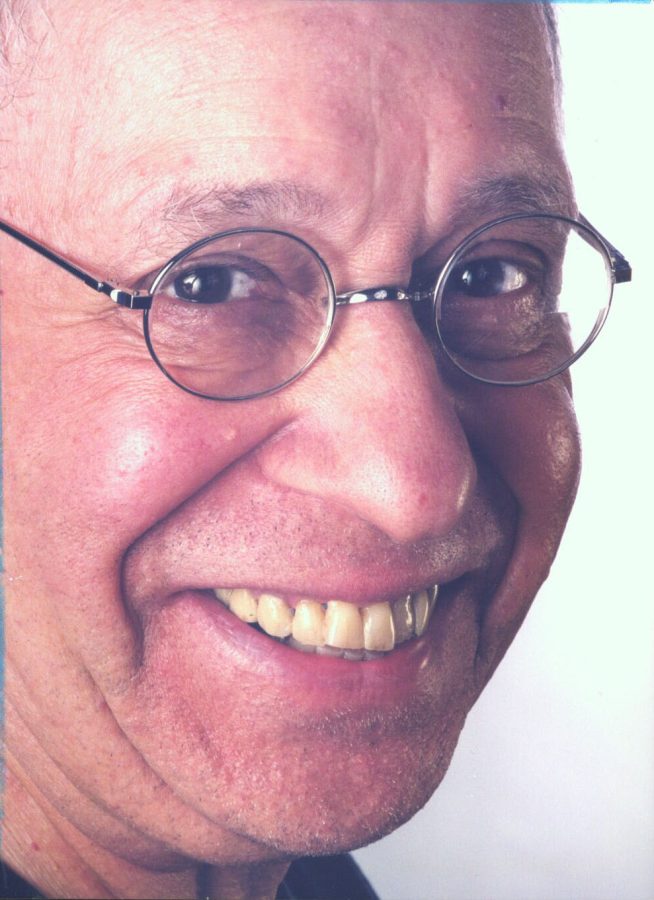Celebrating Ticker Alumni: Marvin Kitman
April 29, 2022
The Ticker, founded in 1932, is the student-run newspaper of City College’s Downtown Campus and 2022 is the newspaper’s 90th anniversary. To honor and celebrate the legacy of The Ticker and the members who have kept it running, the News section will be publishing profiles of former Ticker members throughout the years.
***
Marvin Kitman is an accomplished journalist, television critic, historian, humorist, author and proud Ticker alumnus. Kitman was a columnist for Newsday for 35 years and a finalist for the Pulitzer Prize for Criticism in 1982.
After graduating from Brooklyn Technical High School in the bottom half of his class, Kitman said he attended Baruch College’s night school before being able to attend day school.
“They let me into day school and then the world opened up to me and The Ticker was there,” he said. “For me, that was like getting in the New York Times, it was such a big deal.”
Kitman said that writing for The Ticker taught him about journalism.
“I had the opportunity to learn about journalism without going to a you know, Columbia graduate school of journalism,” he said.
Writing for The Ticker also enabled Kitman to explore his unique style.
“There are basics that you learn, the pyramid style of writing that was commonly accepted, but I was a rebel then,” he said. “My hero was the writer Jimmy Lennon of the New York Post, and I would write like Jimmy Lennon and that was what appealed to [The Ticker’s editor-in-chief] Ralph Ginzburg, because he had the foresight to let me write it in my own style.”
“Most newspapers would just sort of crowd a creative writer down into the standard journalist, but The Ticker is where I started developing a personal style of writing, which was the secret of my success,” he added.
Kitman did not graduate from Baruch because he transferred to City College’s uptown campus to avoid taking accounting. However, he returned to accounting as an author.
“One of the great ironies, of all the books that I wrote after leaving The Ticker, my best-selling book was one called ‘George Washington’s expense account,’” Kitman said.
At The Ticker, Kitman was a sports reporter. While he was a student at City College, the school’s basketball team was the grand slam champion, winning the NCAA and the National Invitational Tournament in the same season.
“Ralph Ginzburg assigned me to write the cover story on both those championships and that was really a great honor, and it really shaped my life,” Kitman said.
As a result of a dumping scandal, the basketball team could no longer compete in Madison Square Garden and the program was limited, causing elite basketball players to no longer be interested in playing for City College.
“It pained me as a journalist – as a sportswriter – what happened after that scandal,” Kitman said.
While he said it was frustrating to watch the aftermath of the scandal, he also said his time at The Ticker helped set up his career path.
“It gave me the opportunity to develop as a writer, which ultimately, I became a famous freelance writer until Newsday hired me as a television critic and that was a great achievement,” Kitman said.
Despite becoming a lauded television critic, Kitman said he was not a fan of television before he started writing about it.
“You think of television now as very exciting, the center of every universe, but back in the 1950s, television was really a dead subject,” he said. “The New Leader approached me, and I explained well I’m very honored, but I never would watch TV and they said, ‘that’s great we will double your honorarium’ because they wanted somebody with a fresh attitude.”
The publisher of Newsday read Kitman’s work in The New Leader, a former American political and cultural magazine, and hired him to work as a Newsday television critic.
To cope with the large amounts of programs on television, Kitman said he pioneered a new method of television reporting.
“Instead of interviewing producers who would tell the critics oh how wonderful this is, and it would be really terrible, the usual crap, my experts were the readers,” he said.
Kitman’s sharp-but-warm wit defined his work as a columnist and permeated his books, but he didn’t want to pursue comedy.
“For me, I was never interested in comedy,” Kitman said. “I had trouble, for example, telling jokes.”
Instead, Kitman said humor stems from a way of thinking.
“If the mind is capable of looking at the world slightly awry, that’s where the comedy is and that’s what makes people laugh,” he said.








